Europe has emerged as one of the most sought-after destinations for healthcare professionals seeking opportunities abroad. For those based in the UAE, the allure of advanced healthcare systems, competitive salaries, and a robust work-life balance make Europe a top choice.
This blog will guide you through the best European work permit schemes available for healthcare professionals in the UAE. Whether you are a nurse, doctor, or allied healthcare worker, understanding these programs is the first step toward a fulfilling career abroad. With insights into eligibility, application processes, and benefits, this comprehensive guide will equip you with the knowledge needed to kickstart your European journey.
Why Europe is an Ideal Destination for Healthcare Professionals
Europe's growing demand for skilled healthcare professionals is no secret. With an ageing population and a healthcare system constantly expanding to meet modern challenges, the need for international expertise has never been higher. Here are key reasons why Europe is a top destination:
- High Demand: Countries like Germany, the UK, and Sweden actively recruit international healthcare professionals due to workforce shortages.
- Advanced Healthcare Systems: Europe boasts the most advanced and well-funded healthcare infrastructures globally.
- Career Development: Professionals can benefit from cutting-edge training, certifications, and specialization opportunities.
- Competitive Salaries: Healthcare roles in Europe often come with attractive salary packages and benefits.
- Cultural Diversity: Working in Europe offers immersing yourself in a multicultural environment.
- Pathway to Permanent Residency: Many European countries offer residency options, creating long-term career stability.
- Family-Friendly Policies: European countries are known for their holistic support for expatriates, from family visas to education benefits for children.
- Quality of Life: Excellent public services, world-class education systems, and picturesque landscapes add to Europe's appeal.
Top European Countries Offering Work Permits for Healthcare Professionals
Europe offers diverse opportunities for healthcare professionals across a range of roles, including:
- Doctors: General practitioners, specialists, and surgeons are in high demand due to healthcare shortages in various European countries.
- Nurses: Skilled nursing professionals, especially in geriatrics, critical care, and pediatric care, are sought after.
- Allied Health Professionals: Roles such as physiotherapists, radiographers, and lab technicians are critical to healthcare systems.
- Dentists and Dental Technicians: Countries like Ireland and Sweden significantly demand dental professionals.
- Pharmacists: Opportunities exist in both hospital and community pharmacy settings.
- Healthcare Managers and Administrators: For professionals with expertise in healthcare operations and policy.
a. Germany
Germany stands out as one of the most popular destinations for healthcare professionals due to its acute shortage of nurses and doctors. The key programs include:
- Blue Card Scheme: Designed for highly skilled workers, this program simplifies the immigration process for professionals with recognized qualifications.
- Specialist Visa for Healthcare Workers: Tailored for nurses and doctors, this visa facilitates fast-track entry.
- Recognition of Qualifications: Applicants must have their foreign degrees recognized by German authorities.
- Language Requirements: Proficiency in German (B2 level) is essential for most roles.
- Benefits: High salaries, extensive job security, and pathways to permanent residency.
b. United Kingdom
The UK's National Health Service (NHS) is a major recruiter of international healthcare workers. Key details include:
- Skilled Worker Visa: Enables healthcare professionals to work in the UK for up to 5 years.
- Fast-Track Processing: Healthcare roles are prioritized for quicker visa approvals.
- Relocation Assistance: Many NHS trusts provide financial support for relocation.
- Eligibility: Nurses and doctors must register with the Nursing and Midwifery Council (NMC) or General Medical Council (GMC).
- Benefits: Competitive salaries, opportunities for specialization, and comprehensive support systems.
c. Ireland
Ireland is another attractive destination, particularly for nurses. The highlights include:
- Critical Skills Employment Permit: Focuses on roles where there are significant shortages.
- Registration Process: Nurses must register with the Irish Nursing Board (NMBI), and doctors need Medical Council approval.
- Language Requirements: English proficiency (IELTS or OET) is mandatory.
- Benefits: Attractive relocation packages, excellent healthcare infrastructure, and family support.
d. Sweden
Sweden's robust healthcare system relies heavily on international professionals. Key aspects include:
- Work Permit Process: A job offer is required before applying for a work permit.
- Recognition of Qualifications: The Swedish National Board of Health and Welfare must evaluate and approve Degrees.
- Language Training: Subsidized programs are available to help professionals learn Swedish.
- Benefits: Exceptional work-life balance, generous parental leave, and substantial employee rights.
e. Other Notable Countries
Countries like France, Denmark, and the Netherlands are also excellent options. Noteworthy programs include:
- Denmark's Fast-Track Scheme: Streamlined visa processes for high-demand roles.
- Netherlands' Highly Skilled Migrant Visa: Aimed at attracting top international talent.
- France's Talent Passport: Simplifies the process for highly skilled professionals.
General Steps to Apply for a European Work Permit
Securing a work permit in Europe involves several steps, each requiring meticulous planning. It is crucial to ensure all your documents are in order and meet the specific requirements of your chosen country. Healthcare professionals from the UAE can follow these general steps:
- Verify Qualifications: Ensure your degrees and certifications meet European standards.
- Language Proficiency: Pass any required language exams (e.g., German B2, English IELTS).
- Secure a Job Offer: Most work permits require a confirmed employment contract.
- Documentation: Prepare essential documents such as your passport, educational transcripts, and experience certificates.
- Apply for Recognition: Submit your qualifications for recognition by the relevant healthcare authority.
- Submit the Visa Application: Apply through the designated embassy or consulate.
- Attend Interviews: Some countries may require an in-person or virtual interview.
- Relocation Preparation: Plan your move and settle into your new role once approved.
Challenges Faced by Healthcare Professionals from the UAE
Moving to Europe as a healthcare professional is a rewarding yet challenging journey. Professionals from the UAE often face unique obstacles that require thoughtful planning to overcome:
- Language Barriers: Adapting to a new language can be daunting but is often necessary for integration.
- Qualification Recognition: The process of validating degrees can be time-consuming.
- Visa Processing Delays: Lengthy application timelines can impact relocation plans.
- Cultural Adjustment: Adapting to a new environment and work culture may take time.
- Financial Strain: Initial relocation costs, including exams and documentation fees, can be significant.
- Family Relocation: Moving with dependents involves additional logistical and emotional considerations.
Tips to Ease the Transition
To make your relocation and career transition smoother, consider these tips:
- Learn the Language: Enroll in language courses before moving to your destination.
- Research Thoroughly: Understand your chosen country's cultural norms, work ethics, and lifestyle.
- Leverage Recruitment Agencies: Partner with agencies specializing in healthcare placements abroad.
- Network: Connect with healthcare professionals already working in Europe for guidance.
- Financial Planning: Budget for exams, travel, and initial living expenses.
- Join Expat Communities: These groups provide emotional support and practical advice.
Financial Planning and Support
Relocating to Europe can come with significant financial implications. Proper planning and understanding of available support systems can ease this burden:
- Relocation Packages: Many European healthcare employers offer relocation assistance, covering travel and initial accommodation expenses.
- Salary Expectations: Research average salaries in your destination country to plan your lifestyle.
- Scholarships and Grants: Explore funding options for language training or professional exams.
- Tax Considerations: Understand the taxation system and potential deductions for expatriates.
- Cost of Living: Evaluate the cost of living in major cities versus smaller towns.
- Remittance: Research reliable remittance options if supporting a family in the UAE.
Career Growth Opportunities
A career in European healthcare offers significant professional development opportunities for UAE-based professionals. Here are some ways to grow your career:
- Specialization: Pursue advanced certifications or training programs offered in European countries.
- Networking Events: Attend medical conferences and workshops to connect with peers and industry leaders.
- Research and Academia: Many countries encourage healthcare professionals to pursue research and academic research.
- Recognition: Gaining European work experience adds prestige to your resume.
- Diverse Roles: Transition into management, research, or educational roles within the healthcare industry.
Wrapping off
Europe offers unparalleled opportunities for healthcare professionals looking to expand their horizons. With high demand for skilled workers, competitive benefits, and a pathway to long-term residency, it's a destination worth considering. For UAE-based professionals, the journey to Europe may come with its challenges. Still, the rewards—both professionally and personally—are immense.
The first step toward transforming your career is exploring the work permit schemes outlined here. Your dream European career might be closer than you think.
FAQ
1. What qualifications are required to work as a European healthcare professional?
You need to have your qualifications recognized by the healthcare authority in your destination country. This may include degree equivalency evaluations, licensing exams, and language proficiency certifications.
2. Are language tests mandatory for healthcare professionals?
Yes, most European countries require language proficiency in the native language (e.g., German for Germany, Swedish for Sweden) or English proficiency for English-speaking roles. Tests like IELTS or country-specific language exams are commonly required.
3. How long does it take to process a European work permit?
Processing times vary by country but generally range from 2 to 6 months. Fast-track options may be available for healthcare professionals in high-demand roles.
4. Can I bring my family with me on a work permit?
Many European countries offer family reunification options, allowing you to bring your spouse and children. These dependents may also access education and healthcare services.
5. What support is provided by European employers for relocation?
Many employers offer relocation packages, including financial support for travel, visa fees, initial accommodation, and sometimes language training.
6. Do I need work experience to apply for a healthcare role in Europe?
While some entry-level roles may be available, most positions require prior work experience. The amount of knowledge needed depends on the job and country-specific requirements.
7. What are the top destinations for nurses in Europe?
Germany, Ireland, Sweden, and the UK are among the top destinations for nurses, offering high demand, competitive salaries, and excellent working conditions.
8. Is there a pathway to permanent residency for healthcare professionals?
Yes, most European countries offer pathways to permanent residency after working for a specified period and meeting other eligibility criteria, such as language proficiency and tax contributions.
Are you looking to start your European healthcare journey?
Please book a consultation with our relocation experts today!


